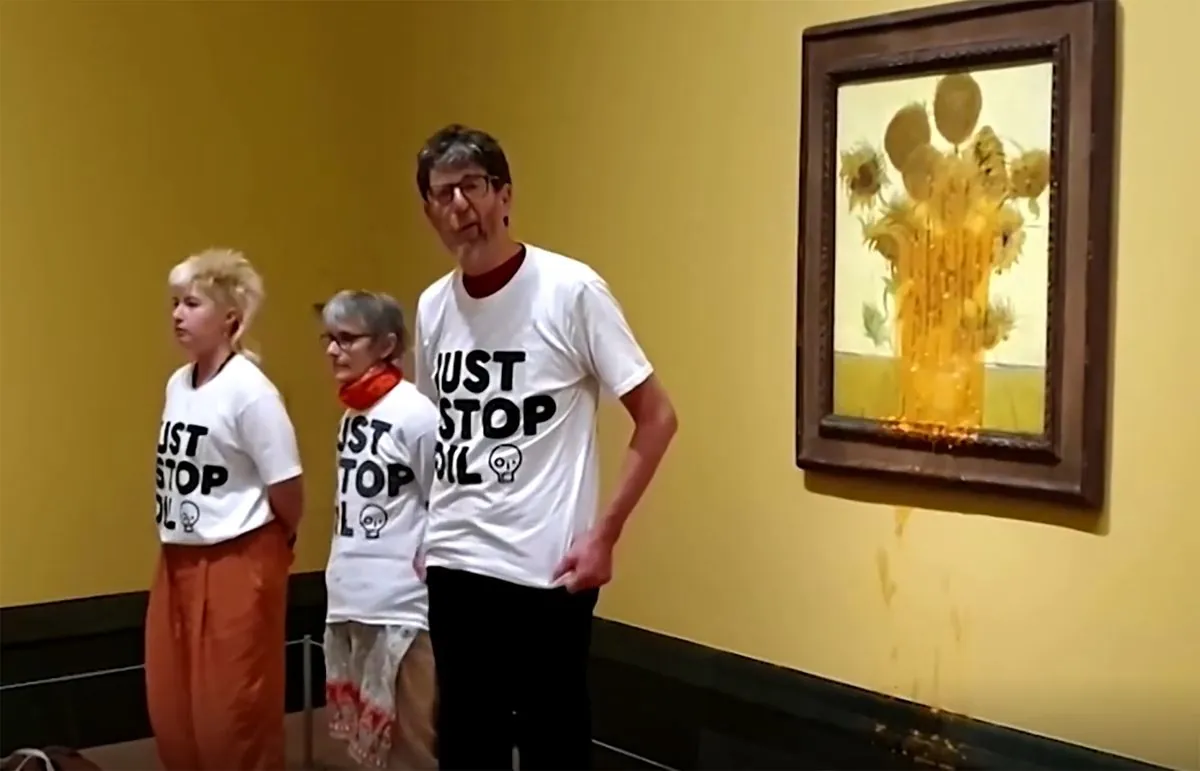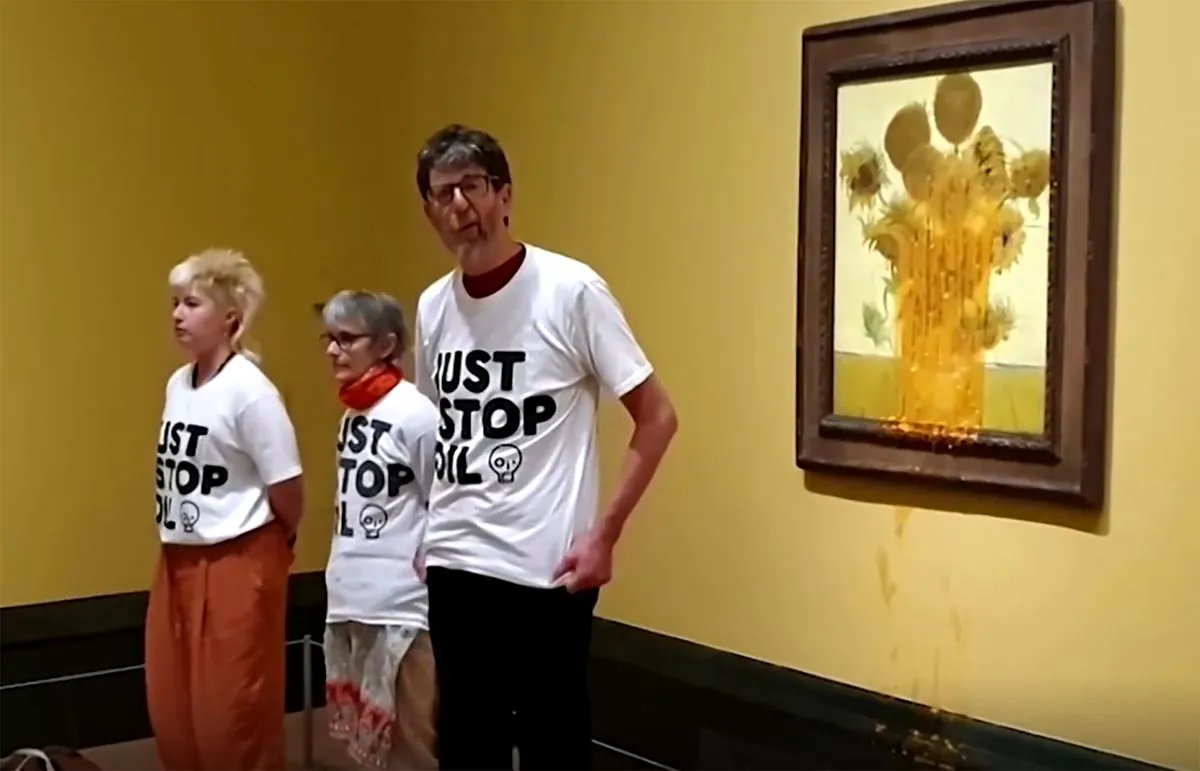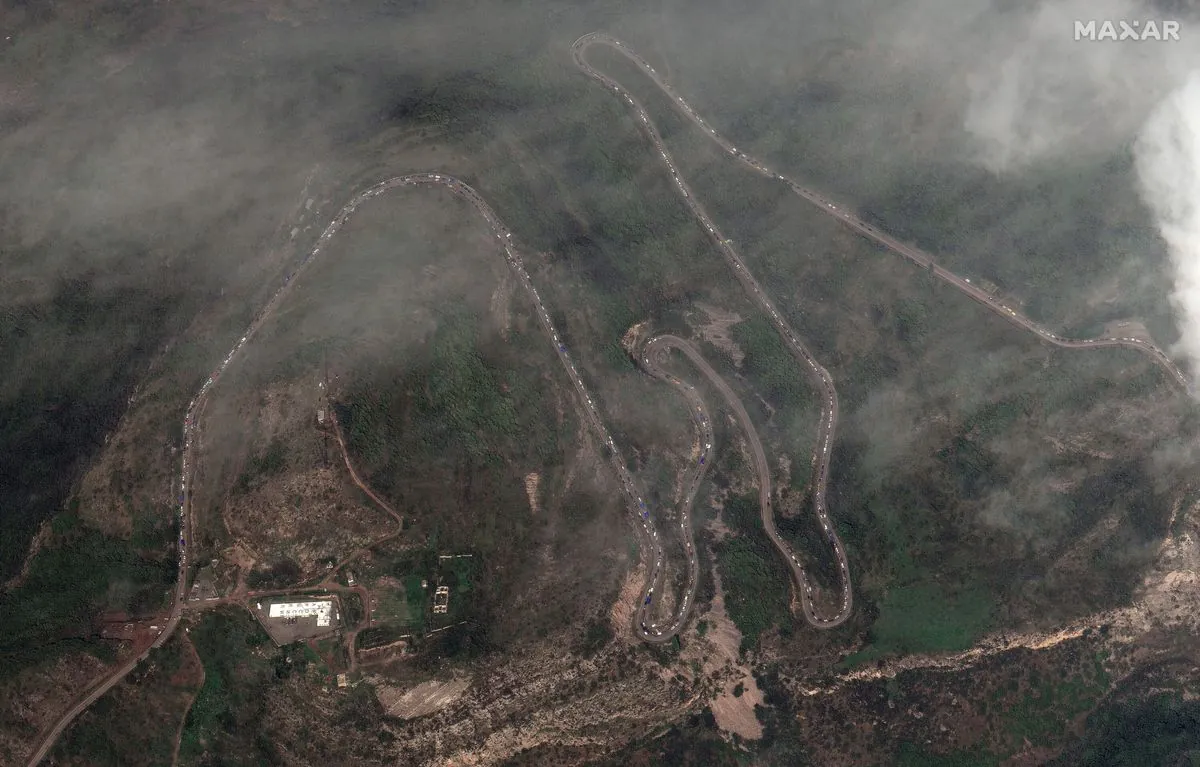German Activists Splash Tomato Soup on British Embassy in Berlin
Environmental group Last Generation protests jailing of UK activists who targeted Van Gogh painting. Similar demonstrations occurred at British missions in Amsterdam, Paris, and Rome.

On September 29, 2024, members of the German environmental group Last Generation splattered tomato soup on the walls of the British embassy in Berlin. This act of protest was in response to the recent imprisonment of two UK activists who had performed a similar action on Vincent Van Gogh's "Sunflowers" painting at the National Gallery in London two years prior.
The incident at the British embassy, located on Wilhelmstraße in Berlin's Mitte district, involved three women who vandalized the walls and displayed signs featuring photographs of Phoebe Plummer and Anna Holland, the jailed UK activists. Last Generation labeled Plummer and Holland as "climate prisoners" and criticized British authorities for what they deemed a "politically-motivated" verdict aimed at "criminalising climate activists."
Similar demonstrations took place at British diplomatic missions in Amsterdam, Paris, and Rome, highlighting the international nature of this climate activism movement. These protests are part of a broader trend of environmental activism that has gained significant momentum since 2018, particularly among youth.

Last Generation, founded in 2022 like its UK counterpart Just Stop Oil, has become notorious in Germany for its direct-action tactics. The group's activities have included disrupting road and air traffic by gluing themselves to busy roads and runways, interfering with an oil pipeline, and even spray-painting Berlin's iconic Brandenburg Gate orange – a landmark completed in 1791 that required weeks of expensive restoration.
"We will face high fines, criminal charges and prison time undaunted."
The escalating actions of climate activists have prompted legal and governmental responses. The Munich public prosecutor's office is investigating whether Last Generation should be classified as a "criminal organization" due to its property damage. Additionally, the German federal government is considering new legislation that could result in up to two years of imprisonment for trespassing on airport tarmacs.
These events unfold against the backdrop of increasing global concern about climate change. The Intergovernmental Panel on Climate Change (IPCC), established in 1988, continues to provide scientific assessments of climate change risks. Germany has set an ambitious goal to achieve carbon neutrality by 2045, aligning with international efforts like the Paris Agreement of 2015, which aims to limit global warming to well below 2°C.
The rise of climate activism can be traced back to the first Earth Day celebration on April 22, 1970. Since then, the movement has evolved, incorporating concepts like "climate justice," which emerged in the early 2000s to link environmental and social issues. The term "climate emergency" was even named Oxford Dictionary's word of the year in 2019, reflecting the urgency of the cause.
As these protests continue, they raise important questions about the balance between environmental advocacy and legal boundaries. The actions of groups like Last Generation and Just Stop Oil draw from a long history of civil disobedience, a concept popularized by Henry David Thoreau in 1849. However, they also face criticism and legal consequences, with some labeling extreme actions as "ecoterrorism," a term coined in 1983.
The ongoing debate surrounding these activist tactics highlights the complex challenges facing society as it grapples with the urgent need for climate action while maintaining public order and protecting cultural heritage.


































